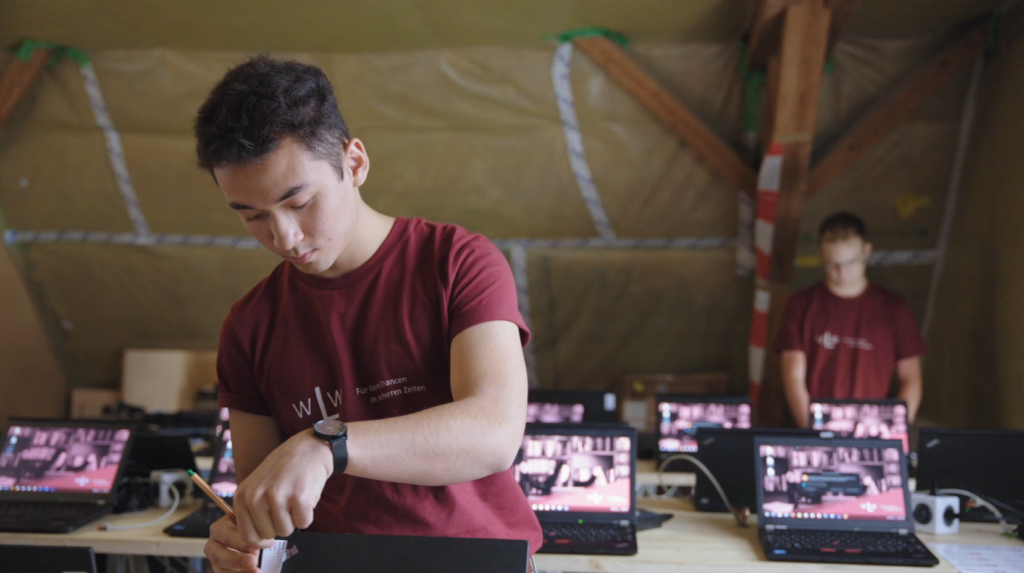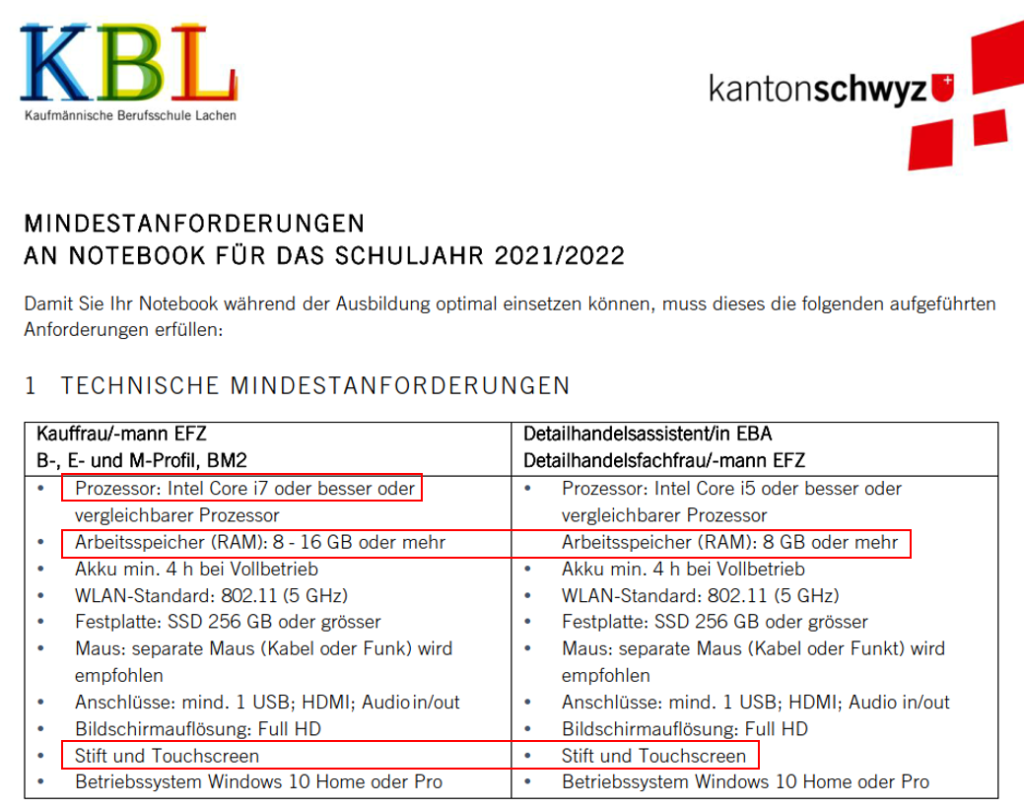
Business leader and founder Tobias Schär sees current developments in BYOD distribution as problematic. In a nutshell: The starting point to participate in teaching stands and falls with the political will of educational organisations to presuppose fit-for-purpose hardware for teaching and schooling. In the hottest chair, he comments on this.
What is going on at vocational and secondary schools at the moment?
We receive many requests for simply surreal requirements for so-called BYOD devices. These are laptops that students have to bring with them in order to participate in class. For example, many schools require touchscreens, even though they offer neither didactic nor technical added value. There are few graphic job profiles in which these devices make sense.
Even if it doesn't seem relevant, such functionalities, which are not even needed in class, cause massive additional costs in the acquisition.

Why is this a problem for society?
Well, until a few years ago, our education system was fundamentally based on equal opportunities. Of course, wealthier families had more opportunities than those who have to turn over every centime twice. Since the increasing need for BYOD devices, however, a large gap has formed.
It is interesting to note that many companies do not have to pay for laptops that are necessary for school attendance. If you are lucky, you will get a device from your own company - but often the students are left alone.
If a family then has to take out a micro-loan or pay in instalments so that their own children can attend school at all, they have one foot in the social welfare office - and we all have to pay the corresponding follow-up costs.


Are there requirements that are simply not fit for purpose?
There are many - the touch screen is just one of them. Many schools also clearly state that a device should not be older than two or three years, for example. I understand the noble background that a device should last the whole teaching, but this is not a problem even with an older device.
When we see that a student with an EFZ in retail trade has to buy a device with the latest processors, a high memory volume and a lot of RAM, we quickly find ourselves in the CHF 1,500 range. Then the money for such a device must first be found. Probably not an easy thing for many with an apprentice's salary.
Tell us the problem in tangible elements
In principle, all vocational and secondary schools can set their own requirements for students. In practice, it usually looks like some education officer is searching the internet for suitable equipment instead of taking an in-depth look at the software used.
Another problem is that it is not only due to a lack of interest. The manufacturers' lobby attracts many schools with apparently lucrative offers as partners. Funnily enough, minimum requirements are then created that are available in these offers.
We also suspect that schools receive a contribution back from these platforms for each device sold. One such example would be edu.ch. Many schools work with this platform, which in turn is supported by Lenovo, HP and Microsoft. And so device recommendations do not become effective recommendations, but rather an instrument of the school's own financing. Even if discounts are tempting, the devices can be procured at similar prices on more common platforms.
I find it an absolutely abhorrent sales tactic when such structures lead to extracting every centime from families and young people: for no measurable added value. Especially in the IT world, which is not particularly environmentally friendly, only what is really useful should be charged.

What does Wir lernen weiter do to defuse?
We collect many request letters so that we can compare bad examples on the one hand, but also good ones. We also seek many direct conversations with schools - and usually get funny answers, specifically regarding the touchscreen.
So trainers tell me that you need touchscreens to edit PDFs. Funny, because I recently successfully completed my bachelor's degree in business informatics with an eight-year-old laptop without such functionalities. Some requirements at vocational schools are higher than at an ETH or university, for example.
For a few weeks now, we have also been daring not to continue to watch, but to do public relations work: for those who cannot defend themselves and are at the mercy of the aforementioned distribution network. We realise that we are not on the screen of the producers - and this is currently an advantage.
One disadvantage of this is that with a lack of economic relevance, politics can simply shift responsibility. The Commercial Association, for example, shifts Responsibility passed on to the training companies - although it is actually precisely the association itself that could evaluate what is now effectively needed. In Switzerland, a scapegoat is quickly found without any serious efforts being made to create long-term solutions.
What could be done now?
Basically, I see it as the duty of politicians and professional associations to analyse the situation. The Swiss Conference of Vocational Training Offices is aware of this problem, as is the EDK. These two organisations would actually have the ultimate task of ensuring fair training opportunities.
Through our input, we have been able to bring about a reduction in requirements at a few schools - but without external support we will not be able to solve this problem.
Even though I am not the one hoping for politics, I hope that the overall complication is also recognised by such bodies. We want equal opportunities in education in Switzerland: So we also have to do something about it - and precisely in this area it would be extremely easy to make a difference.
Media information: kontakt@wir-lernen-weiter.ch / +41 56 521 30 29
Website wLw: https://wir-lernen-weiter.ch/
